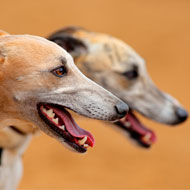
Premier reaches decision after listening to feedback from the industry
The government of New South Wales has revoked plans to ban greyhound racing.
The ban was due to come into force in July 2017 following an inquiry that found evidence of systematic animal cruelty.
But those plans have now been repealed, and the government has confirmed that a new regime will be delivered early 2017.
State premier Mike Baird told BBC News that he had “underestimated” the desire to give the greyhound industry “one last chance”.
"We got it wrong - I got it wrong, cabinet got it wrong, the government got it wrong," he said.
The industry criticised the ban ‘as too extreme a reaction,’ BBC News reports. People were also concerned that large numbers of dogs would be abandoned or put down.
After an ABC TV report uncovered abuses in the racing industry, the government launched its own inquiry. The investigation found that almost 70,000 greyhounds were slaughtered over the past 12 years and almost 20 per cent of trainers used live animal baits.
Dozens of trainers were suspended and, according to the BBC, some were even banned from ever participating in the sport again. Others were charged under animal cruelty laws.
Mr Baird confirmed plans to repeal the controversial ban on Tuesday (11 October), adding that his decision had come after listening to feedback from the industry.
“We did not give the good people in the industry the chance to respond, a chance to reform,” he said. “On behalf of that, I am sorry. That is something we should have done.”
He said new reforms will be put in place to tighten welfare standards. This includes reducing the number of tracks and dogs bred for racing as well as tougher animal cruelty penalties.



 The latest
The latest